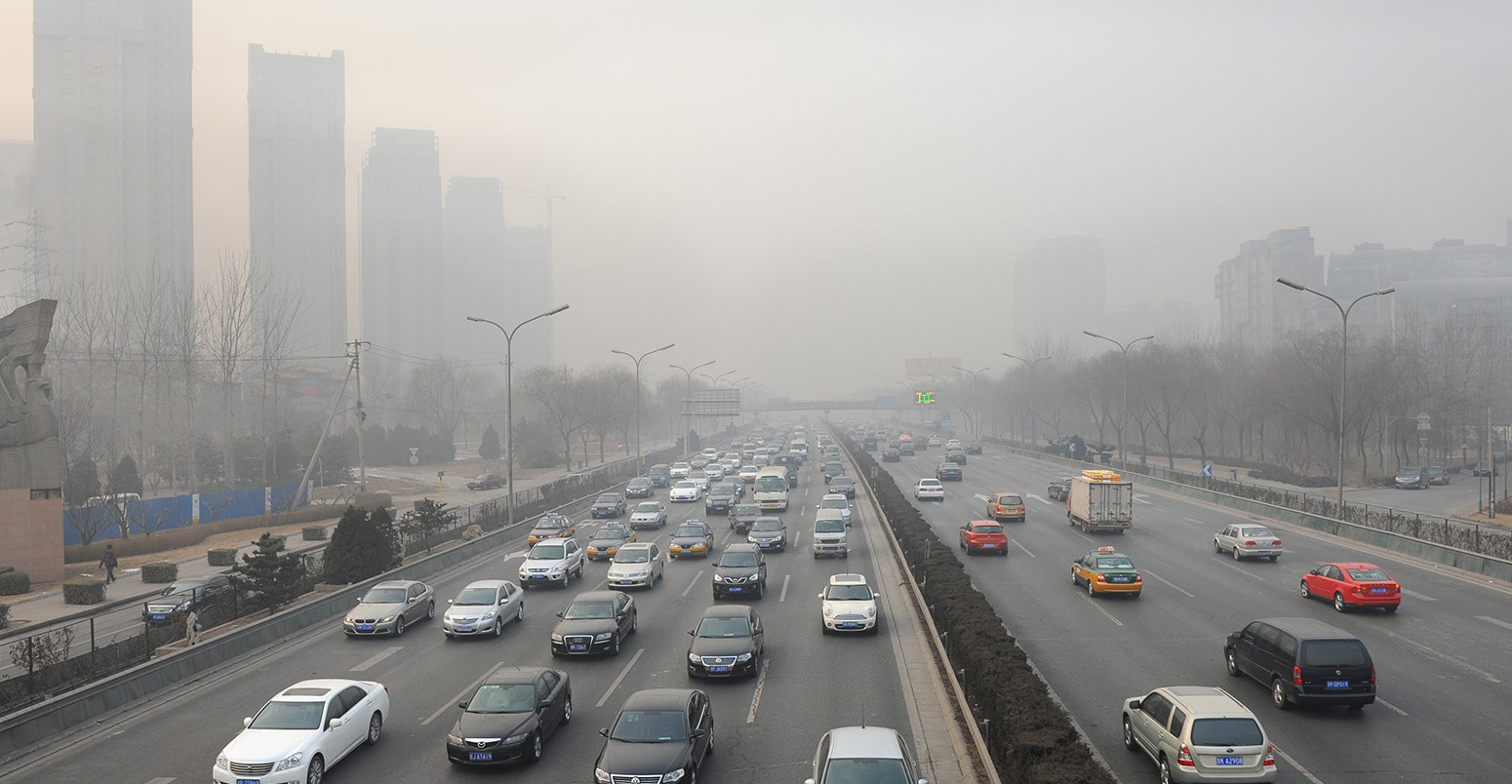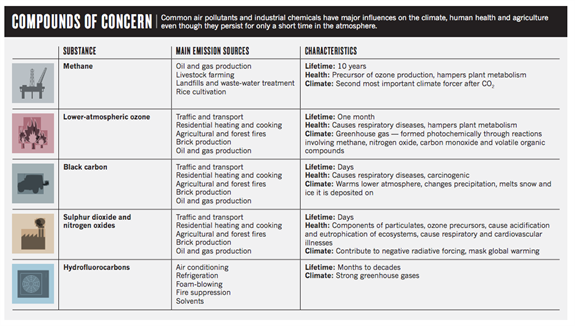
Tackle air pollution to kickstart climate action, says new study
Roz Pidcock
11.19.14Roz Pidcock
19.11.2014 | 6:00pmAir pollution is a huge problem worldwide, killing millions of people each year. Further warming will only increase the size of the problem, according to a Nature article today.
It’s time efforts to curb soot, ozone and other pollutants in the atmosphere got more attention at an international level, the researchers argue.
Getting serious about air pollution could provide the impetus needed to tackle climate change more effectively.
Airborne killers
Methane, ozone, nitrogen dioxide and soot (or black carbon) all contribute to poor air quality.
Air pollution is already the leading environmental cause of ill-health, leading to about seven million premature deaths each year from respiratory and circulatory illnesses.
Earlier today, the European Council ruled the UK must take urgent action to address dangerous levels of air pollution. A number of major cities, including London, are lagging behind targets to reduce nitrogen dioxide to legal limits by the January 2015 deadline.
The burden of ill-health is likely to increase in cities by mid century, as air pollution interacts with further greenhouse gas warming, research shows.
Impacts of common air pollutants for human health, the climate and agriculture. Source: Schmale et al. (2014)
A call for action
A letter in the journal Nature, published today and penned by scientists working at US, Swiss and German institutes for sustainability research, says current air quality laws fall far below what’s needed.
Existing measures to reduce air pollutants are expected to prevent about two million premature deaths by 2040, say the researchers. But more stringent measures aimed at halving black carbon, methane and other pollutants by 2030 could save an extra 40 million lives, as the red line in the left hand graph below shows.

The benefits of cleaner air for reducing premature deaths and slowing global temperature rise. Source: Schmale et al. (2014)
Previous research suggests an ambitious programme to cut air pollutants could save fifty million tonnes of crops from ozone damage each year, and slow warming about 0.5 degrees Celsius by mid-century, shown by the dark blue line on the left-hand graph.
That sounds good, but there are almost no regulatory obligations to report black carbon emissions. Some parts of the world are cleaning up their act, with reductions in parts of North America, Europe, northeast and southeast Asia and the Pacific. But these will be cancelled out by increases in south, west and central Asia and Africa, with little change overall by 2030.
As for methane, which is also a powerful greenhouse gas, the paper says:
“Anthropogenic emissions of methane are predicted to increase by about 25 per cent (more than 70 million tonnes annually) by 2030, yet the gas is hardly regulated at all.”
So why aren’t we doing more?
Slow progress
There are some programmes in place to tackle air pollution. The Climate and Clean Air Coalition (CCAC) is a global network supported by 42 countries, the European Commission, and more than 50 non-governmental organisations worldwide, including the World Bank and the World Meteorological Organisation.
The Arctic Council, which is an international forum for Arctic governments and peoples, has a task force to reduce black carbon and methane emissions in the region. So far Norway is the only member to adopt a national air pollution strategy, but it’s hoped the council’s next meeting in early 2015 could lead to a regional mitigation plan.
Such efforts require scaling up, the paper says. What’s needed is a broader approach that can join up efforts to tackle air pollution with wider measures to address climate change. At the moment, the paper warns progress towards both is hampered by “fragmented policies”.
Tackling both at once could reap benefits, the paper explains. For example, electric cars powered from renewable sources curb air pollution in the short term, and reduce demand for carbon-intensive fuel.
This kind of joined up thinking could avoid legislation in one area cancelling out progress in the other. The paper warns that some strategies to cut carbon emissions could worsen air pollution, and vice versa. For example:
“[C]limate policies that encourage combined heat and power plants with low power capacities for cities – thus potentially exempting them from air-quality regulations – should be avoided.”
Not an ‘either-or’ situation
While it is of global importance, cutting air pollution shouldn’t happen at the expense of action to reduce carbon dioxide. Action on both is needed, the paper explains:
“This is not an ‘either or’ decision â?¦ It’s important that steps to limit [air pollutants] do not distract from carbon dioxide mitigation, and vice versa â?¦ That said, the scientific community must speak out against recommendations – explicit or implicit – to exclude [air pollutants] from discussions of climate change mitigation or to delay their reduction.”
International climate negotiations need to pursue their primary mission to reduce carbon dioxide for the climate’s sake, the paper concludes. But the bottom line from the authors is that the stakes are too high for air pollution to continue taking so much of a back seat.
Main image: Smog over the traffic in Beijing, China. © Hung Chung Chih/Shutterstock.com.
Source: Schmale, J. et al. (2014) Clean up our skies. doi:10.1038/515335a


